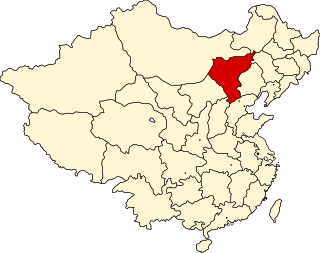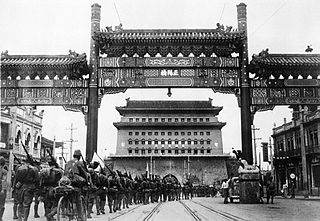
The Battle of Beiping–Tianjin, also known as the Battle of Beijing and the Peiking-Tientsin Operation or by the Japanese as the North China Incident was a series of battles of the Second Sino-Japanese War fought in the proximity of Beiping and Tianjin. It resulted in a Japanese victory.
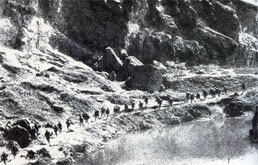
The Battle of Xinkou was a decisive engagement of the Taiyuan Campaign, the second of the 22 major engagements between the National Revolutionary Army and Imperial Japanese Army during the Second Sino-Japanese War.
Wang Jingjiu or Wang Ching-chiu (王敬久) (1902–1968) was a general in China's National Revolutionary Army. He commanded the 87th Division and was engaged in the Chinese Civil War and suppressing the Chahar People's Anti-Japanese Army in 1933. His Division became one of the Chinese-German trained Divisions forme in 1936-37. It fought under the 71st Corps at the Battle of Shanghai and Battle of Nanking. The following year he commanded 25th Corps in the Battle of Wuhan and in the Battle of Nanchang in 1939. He later commanded the 10th Army Group in the Battle of Zhejiang-Jiangxi of 1942, Western Hubei Campaign of 1943, and Western Hunan Campaign of 1945.
The following units and commanders fought in the Defense of the Great Wall of the Second Sino-Japanese War. List as of 20 March 1933.

Operation Chahar, known in Chinese as the Nankou Campaign, occurred in August 1937, following the Battle of Beiping-Tianjin at the beginning of Second Sino-Japanese War.
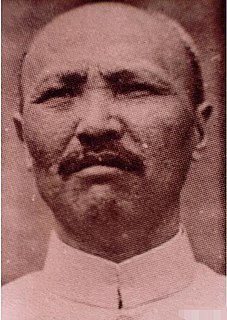
Sun Dianying was a Chinese bandit leader, warlord, and National Revolutionary Army commander who fought in the Warlord Era, Second Sino-Japanese War, and Chinese Civil War, earning notoriety for changing sides multiple times in course of these conflicts.

Pang Bingxun was a high-ranking nationalist military commander who fought against the Imperial Japanese Army and Chinese Communist Army. He stopped the IJA 5th Division led by General Seishirō Itagaki, one of the principal architects of the 1931 Manchurian incident, from capturing Linyi and converging with General Rensuke Isogai's IJA 10th Division at Tai'erzhuang District, foiling their plan to assault Xuzhou.

Sun Lianzhong was a Chinese general during the Warlord Era, Second Sino-Japanese War and Chinese Civil War. Best known for his commanded of the 2nd Group Army in the Battle of Taierzhuang, he had a long career in the army.

Zhao Dengyu or Chao Teng-yu was a Chinese general, distinguished for his service at the beginning of the Second Sino-Japanese War. He was born in a peasant family in Heze, Shandong Province in 1898. He first served as a soldier in the troops commanded by Feng Yuxiang in 1914. After 1922, he distinguished himself on the battlefield and rose through ranks and became successively platoon leader, company commander, battalion commander, regiment commander, brigade commander and division commander. In 1930, he was transferred to be the commander of the 109th Brigade, 37th Division, 29th Army.
Feng Zhanhai or Feng Chan-hai, 冯占海,(1899–1963), was one of the leaders of the volunteer armies resisting the Japanese and the puppet state of Manchukuo in Manchuria. Feng was born on November 6, 1899. At eighteen he joined the Dongbei Army, and later entered a military school graduating in 1921. After he graduated, he was successively a platoon leader, company commander, and battalion commander. At the time of the Mukden Incident and invasion of Manchuria he was a colonel commanding a regiment of the Kirin Guards Division.

Tang Yulin was a Chinese warlord in the Fengtien clique and Chairman of the government of Rehe (Jehol).
Peiking Tientsin Operation from the Battle of Beiping-Tianjin in the Second Sino-Japanese War.
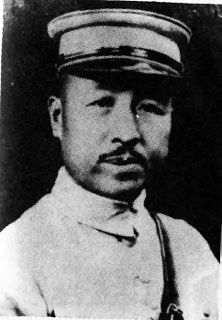
Shang Zhen was a general of the National Revolutionary Army during the Warlord Era and Second Sino-Japanese War.

Liu Ruming, Liu Ju-ming, 刘汝明, (1895–1975) Chinese general during the Warlord Era, Second Sino-Japanese War and Chinese Civil War.

Feng Zhi'an was a Chinese Nationalist Lieutenant-General during the Second Sino-Japanese War, from Hebei.

Sun Zhen was a General of the National Revolutionary Army during the Second Sino-Japanese War.
Zhang Lingyun or Chang Ling-yun, was a general in the Chinese National Revolutionary Army during the Warlord era and Second Sino-Japanese War.
Men Bingyue was a general in the Chinese National Revolutionary Army during the Second Sino-Japanese War. As commander of the 7th Cavalry Division he participated in the Suiyuan Campaign in 1936, defeating the Japanese backed Inner Mongolian Army. After the beginning of the Second Sino-Japanese War in 1937 he was made Commander of the 6th Cavalry Army, fighting in the Battle of Taiyuan defending Suiyuan. In 1940 he was made Deputy Commander in Chief of the 17th Army Group. In 1941, he was made Commander of the 7th Cavalry Army. He died in August 1944 in Chongqing.


